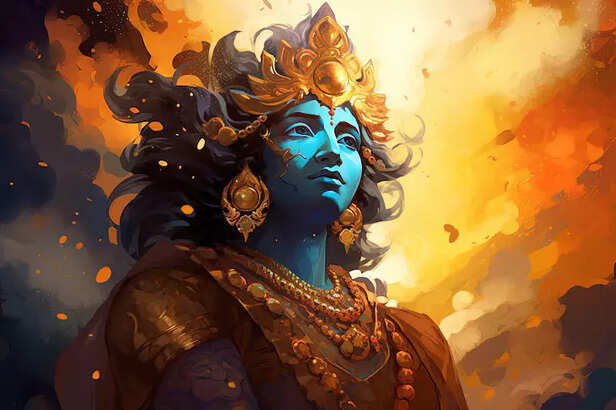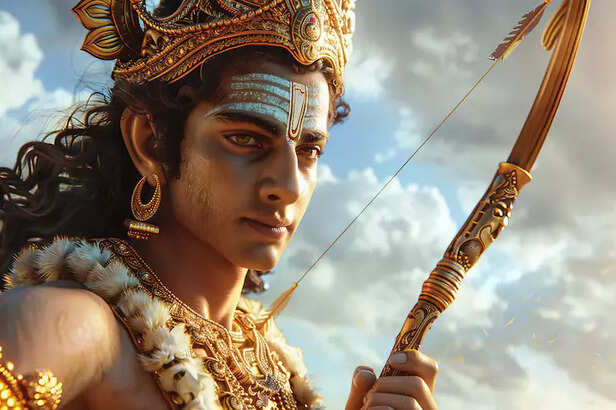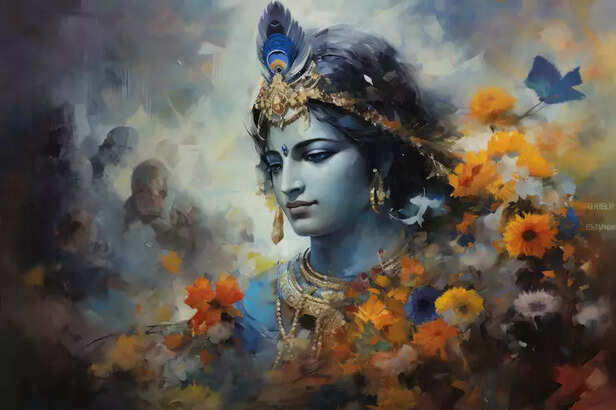Lessons from Mahabharata’s Most Iconic Characters
Amritansh Nayak | May 16, 2025, 10:45 IST

This article examines Arjuna, Duryodhana, Karna, and Krishna's internal conflicts from the perspectives of purpose, loyalty, and ego. It shows how decisions based on pride rather than dharma influenced their lives—and what contemporary readers might take away about morality, self-awareness, and leadership.
A profound meditation on human nature, leadership, and spiritual development, the Mahabharata is more than just an epic war tale. Its fundamental conflict is between moral clarity and personal allegiance, as well as between ego and goal. We see how internal strife, misplaced devotion, and heavenly knowledge can mould not just a battlefield but a whole legacy via the tales of Arjuna, Duryodhana, Karna, and Krishna. This piece explores these ancient teachings and considers how we, too, have to decide what or whom we serve.

One of the best soldiers of his era, Arjuna, is paralyzed by internal turmoil at the start of the Kurukshetra battle. He observes not only adversaries but also cherished elders, cousins, and teachers on the battlefield. He drops his bow and declines to fight, overcome by grief and moral perplexity. It's not just compassion at play here; it's the ego masquerading as remorse, loss aversion, and a desire to avoid accountability. Arjuna's hesitancy is a classic spiritual crisis, which occurs when the self-retreats from its higher goal due to attachments.
While his dharma urges him to act in the interest of fairness and balance, his ego murmurs about personal consequences. Krishna steps in at this point to provide clarification rather than to give orders. Krishna clarifies Arjuna's perplexity through the Bhagavad Gita and exhorts him to put aside his ego and act without regard for the results. Krishna teaches that acting without regard for one's feelings or reputation is the true path to fulfilment. The pivotal moment occurs when Arjuna gives up his identity and becomes a warrior who is in line with divine duty. His metamorphosis serves as a reminder that although the soul looks for meaning beyond fear, the ego fights discomfort.

The eldest of the Kauravas, Duryodhana, is characterized by unbridled ambition and a strong sense of entitlement. His ego—his conviction that the throne is his inheritance, regardless of merit or morality—has influenced his decisions from the start. Pride and an unquenchable desire for power drive Duryodhana to constantly disregard sage advice, associate with dishonest people, and subvert dharma at every turn. He sees justice as a challenge to his ego rather than as a principle to maintain because his infatuation with power causes him to lose sight of the bigger picture.
The Pandavas, in sharp contrast, make an effort to uphold morality in spite of their great loss and suffering. Despite being exiled, humiliated, and betrayed, they maintain their sense of purpose, humility, and divine order. Despite their imperfections, their path is guided by a dedication to justice and truth rather than selfish interests. By "serving" his ego alone, Duryodhana determined his legacy as a warning story rather than a magnificent monarch. His demise came from serving power rather than the truth, not only from losing a war. The Mahabharata serves as a reminder that our legacy is ultimately shaped by the service we provide.

The Mahabharata's unsung hero, Karna, is arguably one of its most tragic characters—not because he lacked courage, but rather because his loyalty was misguided. Karna's life was characterized by rejection and mockery because she was raised by a charioteer despite being born a Kshatriya. It was more than just a gesture of kindness when Duryodhana granted him friendship and a crown; it satisfied Karna's greatest desire for acceptance. Karna's allegiance was cemented at that same moment. Karna, however, was no idiot. He was aware that Duryodhana's cause was unfair. Even after discovering that he was actually the son of Kunti, he acknowledged the Pandavas' goodness. But his pride and thankfulness turned into a chain of loyalty.
Driven by a sense of obligation and a desire for retribution against a society that rejected him, Karna made the decision to support Duryodhana despite the fact that it meant going against dharma. The tragedy here is that Karna served personal suffering rather than the truth. His blindness was as real as his nobility. It begs the troubling question: can loyalty be morally righteous when it upholds injustice? Karna shows us that when ego takes precedence over morality, even the most noble hearts can falter. Without insight, loyalty might ultimately turn into a fatally beautiful fault.

Krishna stands out in the Mahabharata as a leader, a tactician, and a divine power rather than as a warrior. He is a leader who influences without controlling, serves without seeking, and acts out of cosmic purpose rather than ego. He is the epitome of activity without attachment. Krishna's actions are based on dharma, which is the restoration of justice and balance in a world on the verge of anarchy, as opposed to others who are motivated by pride, retaliation, or ambition. Krishna is the most formidable presence on the battlefield, despite the fact that he never fires a weapon during combat.
He guides destinies, advises rulers, and breaks the law, but never for his own benefit. His alleged "manipulations" are intentional alignments intended to further truth rather than victory. Even when he exhorts Arjuna to battle, the goal is to carry out one's job without worrying about the result; winning is not the point. Krishna teaches that clarity, not control, is the hallmark of true leadership. Being at the center of purpose is more important than being the center of attention. He becomes the power of change and the quiet in the storm by overcoming ego. For individuals who want to lead—not by dominance, but through divine intention—Krishna's life serves as a model.
According to the Mahabharata, our future is ultimately determined by who or what we serve. Every story serves as a warning and an inspiration, whether it is about Duryodhana's demise, Karna's devotion, Arjuna's metamorphosis, or Krishna's purpose-driven leadership. The call is obvious for our own lives: let go of ego, embrace clarity, and act from truth rather than attachment. Then and only then do we properly lead ourselves.
Explore the latest trends and tips in Health & Fitness, Travel, Life Hacks, Fashion & Beauty, and Relationships at Times Life!

Krishna leadership
Arjuna's Crisis: The Conflict Between Higher Duty and Self-Doubt
While his dharma urges him to act in the interest of fairness and balance, his ego murmurs about personal consequences. Krishna steps in at this point to provide clarification rather than to give orders. Krishna clarifies Arjuna's perplexity through the Bhagavad Gita and exhorts him to put aside his ego and act without regard for the results. Krishna teaches that acting without regard for one's feelings or reputation is the true path to fulfilment. The pivotal moment occurs when Arjuna gives up his identity and becomes a warrior who is in line with divine duty. His metamorphosis serves as a reminder that although the soul looks for meaning beyond fear, the ego fights discomfort.

spiritual leadership,
The Ambition of Duryodhana: Serving Truth vs. Serving Power
The Pandavas, in sharp contrast, make an effort to uphold morality in spite of their great loss and suffering. Despite being exiled, humiliated, and betrayed, they maintain their sense of purpose, humility, and divine order. Despite their imperfections, their path is guided by a dedication to justice and truth rather than selfish interests. By "serving" his ego alone, Duryodhana determined his legacy as a warning story rather than a magnificent monarch. His demise came from serving power rather than the truth, not only from losing a war. The Mahabharata serves as a reminder that our legacy is ultimately shaped by the service we provide.

Bhagavad Gita teachings
The Misfortune of Serving the Wrong Master: Karna's Loyalty
Driven by a sense of obligation and a desire for retribution against a society that rejected him, Karna made the decision to support Duryodhana despite the fact that it meant going against dharma. The tragedy here is that Karna served personal suffering rather than the truth. His blindness was as real as his nobility. It begs the troubling question: can loyalty be morally righteous when it upholds injustice? Karna shows us that when ego takes precedence over morality, even the most noble hearts can falter. Without insight, loyalty might ultimately turn into a fatally beautiful fault.

leadership lessons
Krishna's Role: Acting with Purpose and Leading Without Ego
He guides destinies, advises rulers, and breaks the law, but never for his own benefit. His alleged "manipulations" are intentional alignments intended to further truth rather than victory. Even when he exhorts Arjuna to battle, the goal is to carry out one's job without worrying about the result; winning is not the point. Krishna teaches that clarity, not control, is the hallmark of true leadership. Being at the center of purpose is more important than being the center of attention. He becomes the power of change and the quiet in the storm by overcoming ego. For individuals who want to lead—not by dominance, but through divine intention—Krishna's life serves as a model.
According to the Mahabharata, our future is ultimately determined by who or what we serve. Every story serves as a warning and an inspiration, whether it is about Duryodhana's demise, Karna's devotion, Arjuna's metamorphosis, or Krishna's purpose-driven leadership. The call is obvious for our own lives: let go of ego, embrace clarity, and act from truth rather than attachment. Then and only then do we properly lead ourselves.
Explore the latest trends and tips in Health & Fitness, Travel, Life Hacks, Fashion & Beauty, and Relationships at Times Life!
